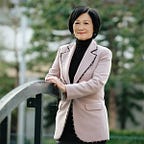On Sunday 15 September, about 1,000 citizens marched on the British Consulate accusing Beijing of breaching its promises made in the Sino-British Joint Declaration; declaring “One Country, Two Systems is dead” and chanting “God saves the Queen, UK saves Hing Kong!”. I feel sorry for these ignorant, pitiable colonial nostalgics who know so little about the world around them, and who harbour false hope about getting help from a former colonial power. It is time to tell them some hard facts.
On universal suffrage, I wish to point out that “universal suffrage” is not mentioned at all in the Sino-British Joint Declaration. It merely states that “The chief executive will be appointed by the Central People’s Government on the basis of elections or consultations to be held locally”. Elections could be “small circle” elections, as at present. “Universal suffrage” is granted in articles 45 and 68 of the Basic Law as the ultimate aim of electing the chief executive and the entire Legislative Council, in accordance with the principles of “gradual and orderly progress” and “in the light of the actual situation” of Hong Kong.
Since 1997, democratic elections have expanded in Hong Kong exponentially. All District Council members are elected by universal suffrage, and 40 out of the 70-strong members of the Legislative Council are elected by universal suffrage.
We could have had elections of the chief executive by universal suffrage if the pan dems did not reject the constitutional reform package put forward by the HKSAR Government in June 2015.
On the right of abode in the UK, the fact is, ever since the end of World War II, knowing that many colonies would sooner or later break away from the moribund British Empire, the UK Government started to take steady measures to amend its immigration and nationality laws to ensure that the British subjects of its colonies could not easily settle in the UK. By virtue of the British Nationality Act 1981, which came into effect on 1 January 1983, the UK Government divided the former United Kingdom and Colonies citizenship into three categories — British citizens who have the right of abode in the UK; British Dependent Territories citizens who only have the right of abode in a dependent territory, such as Hong Kong; and British Overseas citizens, who have the right of abode nowhere in British territories. British nationals in Hong Kong became second-class citizens, with no automatic claim to the right of abode in the UK.
In 1986, Parliament further passed the Hong Kong (British Nationality) Order 1986 to create a new residual status of British National (Overseas) for British Dependent Territories citizens (Hong Kong). BDTCs (Hong Kong) could acquire this status by a certain deadline before 1997. They can have this status for life but cannot pass it on to their children. Some Hong Kong citizens applied for this status and hold BN(O) passports. But as these passports are not widely used, their holders have enjoyed less international access than holders of the HKSAR passports.
Hong Kong legislators in the 1980s were so upset by the UK Government’s well-planned moves to close its doors on Hong Kong people that the Hon. Martin Lee Chu Ming slammed the new British nationality arrangements as “One country, six citizenships”, while the Hon. Emily Lau derided the BN(O) status as signifying “British No!”
I note that the demonstrators urged the UK Government to give BN(O)s the same status as British citizens, effectively giving them the right of abode in the UK. I would have no objection whatsoever to these people emigrating to the UK . But that is a vain dream. The UK voted for Brexit in 2016 largely because many Britons did not welcome foreigners, not even those from Europe. What makes people think they would welcome Hong Kongers? Now that the UK is mired in chaos arising from imminent “no deal Brexit”, the chances of the British people, and their politicians, welcoming discontented Hong Kongers to their land are next to zero.
